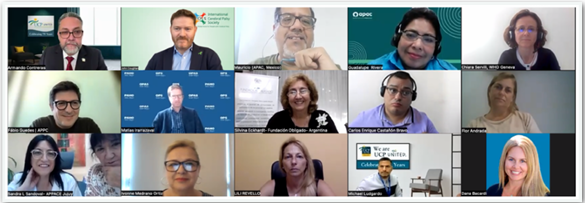International Cerebral Palsy Society - A commitment to civil society representation
The International Cerebral Palsy Society (ICPS), founded in 1969, is a self-help "umbrella" organisation acting as a resource centre aiming to provide knowledge, appropriate support and encouragement to people with disabilities, their families and the professionals who work with them. It is an organisation which responds to need, helping others to reach self-sufficiency and a dignified, independent life in so far as possible.
In 2024, ICPS was awarded a grant of £2,000 to support a project for Cerebral Palsy Family Association Vietnam (CPFAV) for the provision of wheelchairs and mobility aids to children with cerebral palsy.
ICPS is also a member of the WHO Civil Society Commission. You can read some highlights below from ICPS’s 2024 activities and impact.
Civil Society Commission
ICPS is a member of the WHO Civil Society Commission and its Secretary General is on the Steering Committee. It is an opportunity to help WHO interact better with civil society at all levels, ensuring that the voice of people with cerebral palsy as well as other marginalised groups is heard.
Contributing to WHO Strategy 2025-28
ICPS contributed actively to the civil society consultations on WHO’s 14th General Programme of Work (known as “GPW14” i.e. its strategy for 2025-28) and was instrumental in ensuring that disability features much more prominently than originally planned.
“Civil society (…) had a very big impact in GPW14. There are things in the document that wouldn’t have been there if they were not proposed by civil society. A couple of them stand out: rehab, palliative care. And they were very practical; that was great. Or disability. I think we have much more visibility of disability thanks to them.”
Focusing on cerebral palsy
ICPS co-organised with WHO and UNICEF an online event in March to highlight the insights for cerebral palsy from the Global Report on Children with Developmental Disabilities. Two webinars were organised on the same day - one in English, one in Spanish - with 188 registered participants.




